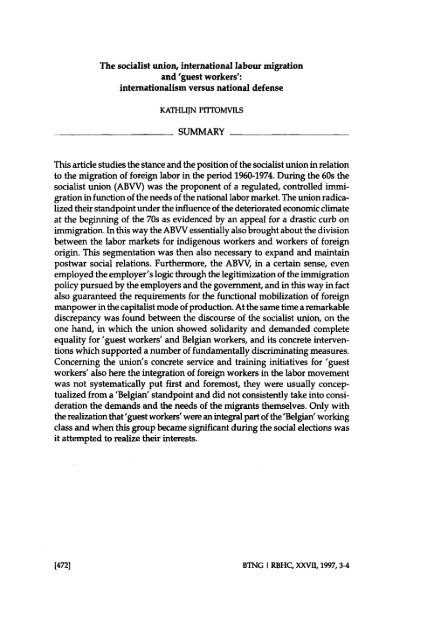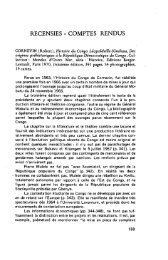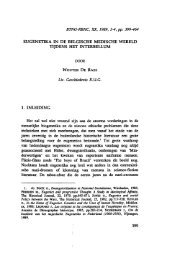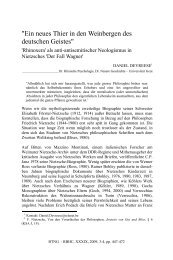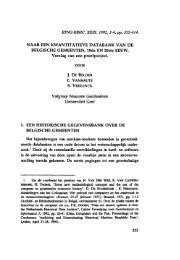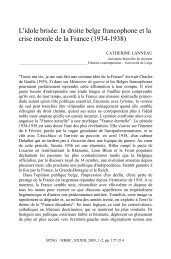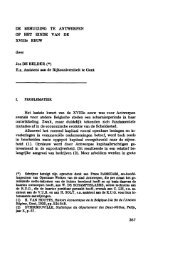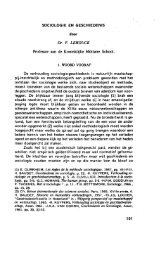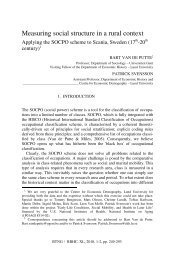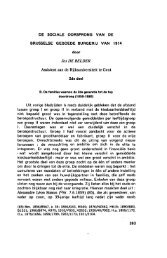Fulltext - BTNG · RBHC
Fulltext - BTNG · RBHC
Fulltext - BTNG · RBHC
Create successful ePaper yourself
Turn your PDF publications into a flip-book with our unique Google optimized e-Paper software.
The socialist union, international labour migration<br />
and 'guest workers':<br />
internationalism versus national defense<br />
KATHUJN PITTOMVILS<br />
SUMMARY<br />
This article studies the stance and the position of the socialist union in relation<br />
to the migration of foreign labor in the period 1960-1974. During the 60s the<br />
socialist union (ABW) was the proponent of a regulated, controlled immigration<br />
in function of the needs of the national labor market. The union radicalized<br />
their standpoint under the influence of the deteriorated economic climate<br />
at the beginning of the 70s as evidenced by an appeal for a drastic curb on<br />
immigration. In this way the ABW essentially also brought about the division<br />
between the labor markets for indigenous workers and workers of foreign<br />
origin. This segmentation was then also necessary to expand and maintain<br />
postwar social relations. Furthermore, the ABW, in a certain sense, even<br />
employed the employer's logic through the legitimization of the immigration<br />
policy pursued by the employers and the government, and in this way in fact<br />
also guaranteed the requirements for the functional mobilization of foreign<br />
manpower in the capitalist mode of production. At the same time a remarkable<br />
discrepancy was found between the discourse of the socialist union, on the<br />
one hand, in which the union showed solidarity and demanded complete<br />
equality for 'guest workers' and Belgian workers, and its concrete interventions<br />
which supported a number of fundamentally discriminating measures.<br />
Concerning the union's concrete service and training initiatives for 'guest<br />
workers' also here the integration of foreign workers in the labor movement<br />
was not systematically put first and foremost, they were usually conceptualized<br />
from a 'Belgian' standpoint and did not consistently take into consideration<br />
the demands and the needs of the migrants themselves. Only with<br />
the realization that 'guest workers' were an integral part of the 'Belgian' working<br />
class and when this group became significant during the social elections was<br />
it attempted to realize their interests.<br />
[472] <strong>BTNG</strong> I <strong>RBHC</strong>, XXVII, 1997,3-4


